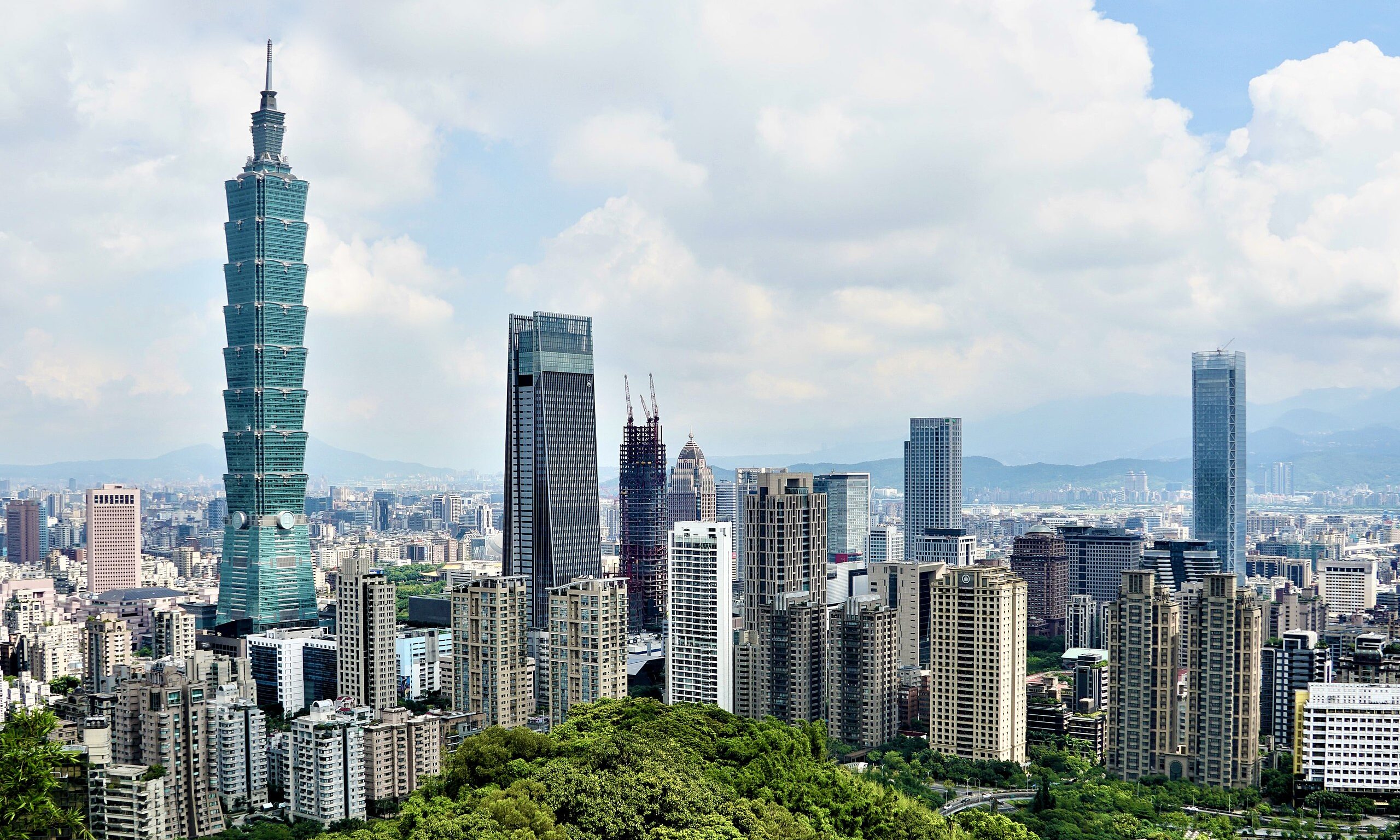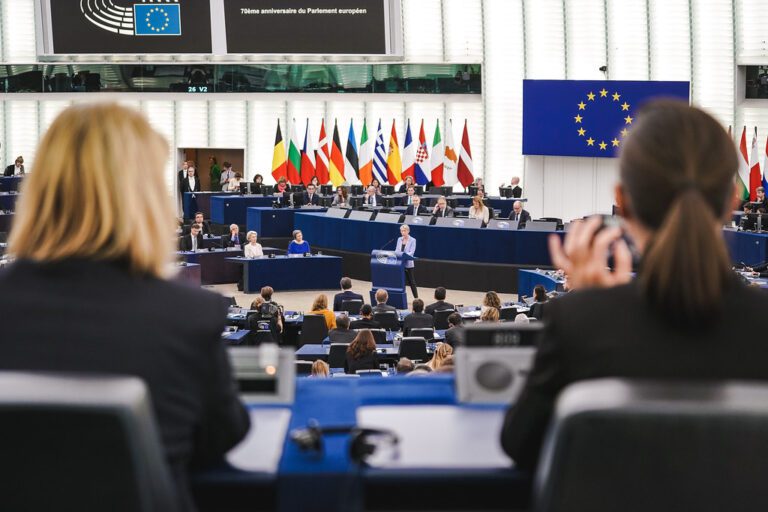Commitment to Democracy Triumphs in Taiwan’s Elections

The victory of Lai Ching-te in the Taiwanese presidential elections presents new avenues for Taiwan-EU cooperation.
“Between democracy and autocracy, Taiwan stands on the side of democracy”, stressed Lai Ching-te, the winner of Taiwan’s presidential elections in his address to the press on the eve of the island’s most contested elections in its history. Lai said this was one of the most significant messages of the outcome of the elections, in which the people have successfully resisted external interference. As president, he vowed to walk side by side with democracies around the world.
Winning just over 40 percent of the ballot, the DPP secured an unprecedented third consecutive term, the first time any political party managed this result since 1996 when the first direct presidential vote was held in Taiwan. Lai defeated Hou Yu-ih of the opposition party Kuomintang (KMT) and Ko Wen-je, the presidential candidate of the Taiwan People’s Party (TPP).
Resisting Chinese Interference
The campaign was intense, and China, which considers Taiwan as its own although it never ruled it, has doubled down on efforts to interfere in the elections and manipulate the process. After all, a democratic Taiwan that guarantees free and fair elections, upholds the rule of law and operates in transparency with bottom-up citizen participation, poses a risk to Beijing’s authoritarian, top-down, opaque rule.
In the months ahead of the elections, compared to the previous year, Taiwan faced a 3,370 percent growth in cyberattacks against the government, technology and its critical infrastructure, according to the January 2024 Cloudflare Report. The Chinese leadership’s and its proxies’ main objectives remain to undermine the people’s trust in their government and weaken support for the ruling DPP, which Beijing deeply distrusts.
Given the shared cultural heritage and language, Beijing has a grasp of Taiwan’s sociocultural pressure points. As part of its pressure campaign, China warned that a vote for Lai is a vote for war, and helped to amplify those domestic narratives inside Taiwan that in Beijing’s view would serve its own interests. In early January, Zhang Zhijun, head of China’s Association for Relations Across the Taiwan Strait, said that the Taiwanese faced an important choice between the prospects for peace and war, prosperity and decline.
Throughout his campaign, the KMT’s Hou has insisted that the elections were about “peace vs. war.” At the same time, he promised to bolster the island’s defense and restart dialogue with Beijing as part of his so-called 3D strategy of deterrence, dialogue, de-escalation. In contrast, Lai’s campaign stressed that the elections were about “democracy vs. autocracy.”
Positioning himself beyond such binary choices, TPP’s Ko proposed the “third way”. The former Taipei mayor suggested the elections were a choice between “new politics” and “old forces.”
All three candidates said they were committed to the status quo in cross-Strait relations, claiming they were open to dialogue and communication with Beijing. In an August 2023 Bloomberg interview, DPP’s Lai said: “We don’t want to be enemies; we can be friends. And we would love to see China enjoy democracy and freedom – just like us. As long as there is parity and dignity, our door is always open.”
He added that until China renounces the use of force against Taiwan, the island must strengthen its military capacity and “stand shoulder to shoulder with democracies to effectively deter the threats from China and secure stability in the Indo-Pacific region.
Taiwan’s Global Significance
Taiwan’s geostrategic location in the heart of the Indo-Pacific, a region where roughly two thirds of the world’s container ships transit and where China has become increasingly assertive, makes it clear that the outcome of the elections has global implications. As the world economy rapidly digitalizes, its reliance on semiconductors will grow, 60 percent of which are produced in Taiwan, with over 90 percent of the most advanced chips being made on the island.
Yet, in light of Beijing’s hostility to Taiwan’s commitment to democratic values, democracies across the globe have reason to be worried about more than just their corporate interests. The January elections saw an assertive China become more assertive. In 2021, Chinese leader Xi Jinping said that “resolving the Taiwan question and realizing China’s complete reunification is a historic mission and an unshakable commitment” of the CCP. Reacting to the election, China’s Foreign Ministry issued a statement, stressing: “The Taiwan question is China’s internal affair. Whatever changes take place in Taiwan, the basic fact that there is only one China in the world and Taiwan is part of China will not change.”
Going forward, Taiwan will require more, not less international support. It is therefore in Europe’s interest to stay engaged in the region and continue to strengthen cooperation with Taiwan as it seeks to rebalance cooperation with China. The EU has recognized Taiwan’s expertise in handling cyberattacks (13 million/month), at the same time as the bloc fears China’s rising cyber threats at home. In recent years, the EU’s Agency for Cybersecurity (ENISA) has warned of multiple Chinese advanced persistent threat actors (APT) targeting businesses and government organizations in the EU, as well as key European industries, and strongly advised the relevant actors to follow common cyber hygiene recommendations.
Taiwan is at the forefront of the CCP’s hybrid aggression and remains a testing ground for hybrid threat tactics. The island has developed more capacity to counter political and psychological warfare tactics. A prompt reaction mechanism is in place to uncover false information and clear doubts, with a focus on media literacy. Yet, given domestic polarization, challenges remain. This will require cultivating an ecosystem of trust within Taiwanese society, by embracing a plurality of perspectives and fostering a sense of unity that is not easily fissured by political partisanship.
In light of European parliamentary elections coming up in June 2024, the European Union should continue to further develop cooperation with Taiwan to jointly counter disinformation and strengthen resilience against cyberattacks, and to learn from Taiwan’s experience in protecting its democracy from interference. Taiwan will need to do its own part vis-à-vis Europe and engage it strategically as a priority partner, alongside the US and Japan, as European investment remains the largest on the island. Taiwan should also invest more in learning to better navigate the EU’s complexities, which has often entailed that the bloc of 27 countries is not able – most often because it lacks the political will – to move as fast and as coherently as a single government can.
To withstand the threats it faces, Taiwan needs a Europe that speaks clearly and acts strategically in line with its claim to embrace Taiwan as a partner in a volatile region where Europe has its own interests to protect. President-elect Lai said it would continue President Tsai Ing-wen’s policies in terms of consolidating international partnerships. Taiwan must develop a clear, convincing and credible EU strategy to be able to exercise agency and shape bilateral cooperation based on a solid understanding of Europe’s challenges in light of its own, and focus on sectoral cooperation that helps advance its own internationalization process. It is both in Europe’s and Taiwan’s interest to not neglect, but support each other further and bolster democratic resilience at home and abroad.
Written by
Zsuzsa Anna Ferenczy
zsuzsettteZsuzsa Anna Ferenczy is a Ph.D. Assistant Professor, National Dong Hwa University, Hualien, Taiwan, Head of Associates Network at 9DASHLINE, former political advisor at the European Parliament.


